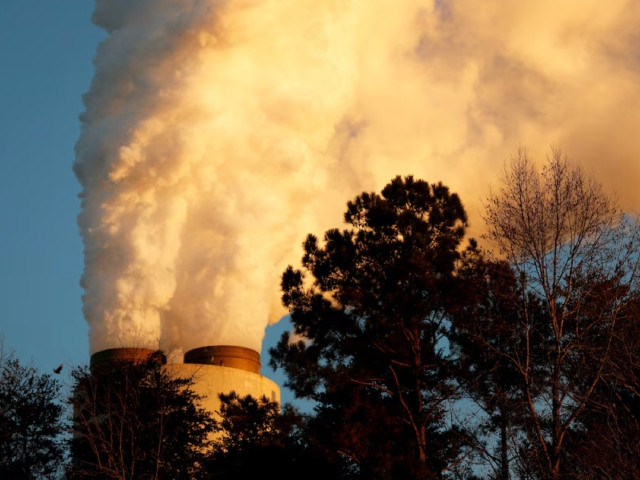US court allows power plant emissions rule to proceed amid states' challenge
Environmental Protection Agency rule requires greenhouse gas emissions be reduced by 90% by 2032

A US appeals court on Friday ruled that a regulation ordering deep cuts in power plants' carbon emissions can go ahead while it considers a challenge from more than two dozen Republican-led states.
The Environmental Protection Agency rule applies to existing coal-fired power plants and any new natural gas plants.
The US Court of Appeals for the D.C. Circuit in Washington, D.C. found that a stay was not necessary because the states faced no immediate harm, since the rule's earliest compliance deadline is in 2030.
An EPA spokesperson said that the agency was pleased with the ruling. West Virginia Attorney General Patrick Morrisey, who is leading the challenge, said in a statement that the rule was unlawful and he would seek a stay from the US Supreme Court.
The rule, part of Democratic President Joe Biden's broader climate agenda, requires that greenhouse gas emissions be reduced by 90% by 2032.
It has been challenged not only by the states, which include Indiana, Ohio and Kansas, but by electric utility, mining and coal industry trade groups.
To comply, the US power industry - which produces nearly a quarter of US greenhouse gas pollution - would have to install costly emissions control technologies or shut down the dirtiest plants running on coal.
The EPA has said the reductions are feasible if the plants install carbon capture and sequestration technology that prevent emissions reaching the atmosphere.
The challengers contend that the method has not yet been meaningfully deployed and is too costly. They have also said the EPA exceeded its authority by making the rule and needed explicit congressional approval to do so.



















COMMENTS
Comments are moderated and generally will be posted if they are on-topic and not abusive.
For more information, please see our Comments FAQ